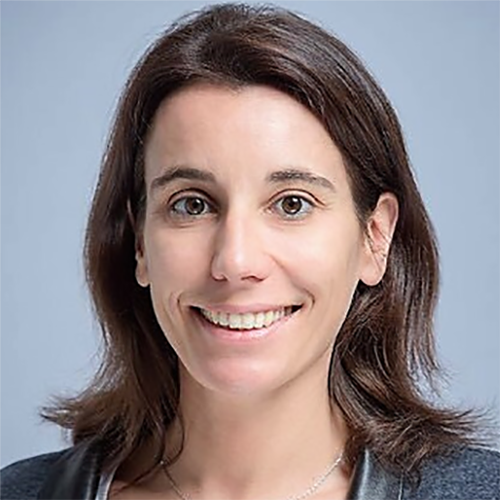As Islamic finance plays catch-up with its conventional counterpart as a funding avenue, it continues to innovate and opens up a new pool of liquidity to prospective issuers. The sukuk market saw the introduction of new asset classes and the entry of first time issuers led by the Kingdom of Saudi Arabia (KSA), which printed its long-awaited inaugural sovereign offering in April 2017 and helped drive global sukuk issuance to US$100 billion in 2017. This was up 17% from 2016 at a time when the total volume of conventional G3 bond issuance out of Asia amounted to another record high at over US$330 billion.
Innovation remains a hallmark of Islamic finance and this was reflected among the winners in The Asset Triple A Islamic Finance Awards 2018. Tadau Energy of Malaysia printed the world’s first green sukuk amounting to 250 million ringgit (US$62.50 million) to finance the construction of a 50MW solar energy project. Voted as the Best green sukuk and most innovative deal, this was a pioneering transaction in harnessing capital markets, in particular Islamic finance, for climate-friendly investments.
The PNB Merdeka Ventures, selected as the Best socially responsible investing (SRI) sukuk, was the first one to adopt the Asean green bond standards issued by the Asean Capital Markets Forum and launched by the Securities Commission Malaysia. The issuance of the Merdeka Asean green SRI sukuk, the first Asean green SRI sukuk by a government-linked investment corporation issuer, marks the entry of green sukuk into the mainstream sukuk market and facilitates the development of such an innovative approach to sustainable finance in Malaysia.
The KSA also blazed a trail when it priced its first US dollar-denominated sukuk amounting to US$9 billion in two tranches, equally split at US$4.5 billion each for five years and 10 years. The landmark transaction earned for KSA the sovereign issuer of the year and the deal itself scoops several honours, including Islamic deal of the year, Best sukuk and Best sovereign sukuk.
The offering garnered a final order book of more than US$33 billion from 520 high quality accounts, both Islamic and conventional. In printing the deal, KSA was the first sovereign to use the mu daraba and murabaha structure for its international sukuk offering, which enabled it to invest 51% or more of the issuance proceeds in certain commercial enterprises.
The murabaha sukuk by Danajamin Nasional amounting to 500 million ringgit represented the world’s first financial guarantee insurer tier 2 subordinated sukuk and marked Danajamin’s entry into the capital market as a bond issuer. Following a successful book building strategy, the transaction – chosen as the Best debut sukuk – was upsized from the original target of 300 million ringgit.
In another ground-breaking transaction out of Malaysia, Sime Darby undertook any-and-all tender offer and consent solicitation on its US$400 million sukuk due 2018 and US$400 million sukuk due 2023. The landmark deal – voted as the Best liability management exercise – represented an important milestone in the execution process of Sime Darby’s reorganization and it also marked the first US dollar tender offer from Malaysia since 2009.
Malaysia’s national mortgage corporation Cagamas is again selected as the quasi-sovereign issuer of the year after a successful 2017 with a total of 24 issuances worth 15.3 billion ringgit – the company’s highest bonds and sukuk issuances in a single year since 2009. It continued to adopt pro-active initiatives to promote the secondary market liquidity to local and international investors with strategies that include dual tranche re-openings of its bonds and sukuk – the first of its kind in Malaysia.
This was best exemplified when it re-opened the three-year 475 million ringgit and 525 million ringgit sukuk in September 2017, which illustrates Cagamas’ continued innovation within the local fixed income market and its ongoing strategic initiatives to promote secondary liquidity of the re-opened securities with the enhanced issue size.
Malaysia’s largest electricity utility Tenaga Nasional secures the accolade as the corporate issuer of the year on the back of a 2 billion ringgit wakala sukuk for 20 years, representing the longest tenor corporate bond in the ringgit bond/sukuk market in 2017. It marked Tenaga’s return to the domestic capital market at the corporate level since its previous issuance in 2001.
In addition to the KSA sovereign deal, the Gulf Cooperation Council (GCC) markets have their fair share of the best transactions in this year’s Islamic Finance Awards. Emirates Reit (CEIC) Limited (Real Estate Investment Trust) is voted as the Best Reit as it became the first Reit from the GCC to access the international sukuk market for US$400 million. In the process, it likewise became the first Reit from the region to obtain a credit rating (BB+ from Fitch Ratings).
Saudi Arabian Oil Company (Saudi Aramco) wins the Best local currency sukuk for its 11.25 billion riyal (US$3 billion) debut sukuk, which represented the largest sukuk issuance globally outside of the sovereign and government-guaranteed categories. While the trade was executed in a challenging market environment, it achieved the issuer’s objectives in terms of investor demand, final coupon and closing at the higher end of its issuance target.
The Best bank capital sukuk award goes to Warba Bank for its US$250 million perpetual non-call five-year subordinated mudaraba sukuk. The Basel III-compliant additional tier 1 capital securities under the Central Bank of Kuwait was the bank’s inaugural offering in the international debt capital markets and the first tier 1 instrument launched from the GCC region in 2017.
Islamic investors also had a good year in 2017 and among the Islamic asset management houses in Asia, Saturna is selected as the ESG asset manager of the year as it put more emphasis on sustainable Islamic investing. By country, AIIMAN Asset Management wins the Islamic asset manager of the year award in Malaysia, achieving strong growth in assets under administration underpinned by the continuous support from the pension/public sector, corporates, government-linked companies and individual investors.
Other winners are Franklin Templeton (Malaysia-Institutional), Public Mutual (Malaysia-Retail), BNP Paribas Investment Partners (Indonesia), Al Meezan Investment Management Limited (Pakistan), QInvest (Qatar) and Sidra Capital (Saudi Arabia).
The Best ETF provider is once again given to i-VCAP, the largest Islamic ETF issuer globally by number of funds. Among the takaful institutions, Etiqa and Prudential BSN split the honours with Etiqa winning the award for general takaful and Prudential BSN for life takaful.
For its role in pushing for the further development of Malaysia’s Islamic finance industry, Securities Commission Malaysia is cited as the Islamic regulatory agency of the year. One of SC’s mandates is to maintain the competitiveness of the country’s capital markets and that is what it has been doing during the past few years. In early 2017, it launched the Islamic wealth management blueprint, a comprehensive document that looks at how Malaysia can further develop its Islamic wealth management capabilities during the next five years.
The SC launched the SRI sukuk framework in 2014 to facilitate the financing of sustainable and responsible investment initiatives. These initiatives relate to SRI projects encompassing natural resources, renewable energy and energy efficiency, community and economic development and waqf properties/assets.
In his first full year as CEO of HSBC Amanah Malaysia, Arsalaan Ahmed presided over a strong performance in 2017, which saw the bank achieve robust growth in global banking and markets in terms of financing and advances, as well as in customer deposits. Honoured as the recipient of this year's Islamic banker of the year award, he guided HSBC Amanah to remain at the forefront of Islamic finance among the foreign banks in Malaysia.
As for the best Islamic banks, Maybank Islamic Bank is once again voted as Bank of the year for Asia-Pacific, as well as for Malaysia and Singapore. The bank delivered another strong performance in 2017 as it recorded 27% growth in profit before tax of 2.3 billion ringgit compared with a year ago, driven by higher net fund-based income.
The Best investment bank award for Asia-Pacific goes to CIMB Investment Bank, while Standard Chartered gets the honours for the Middle East. The sukuk adviser of the year is awarded to Standard Chartered (Global), CIMB Investment Bank (Asia-Pacific) and HSBC (Middle East).
Fitch Ratings is another repeat winner as the Islamic rating agency of the year as it demonstrates its strong commitment to developing the Islamic finance industry. It has a methodology dedicated to rating sukuk, and the significant sukuk transactions it rated in 2017 included the sovereign deals for KSA, Republic of Indonesia, Hong Kong, Islamic Republic of Pakistan, Republic of Turkey and Sultanate of Oman.
For the winners of issuer/adviser awards, please click here.
For the winners of the best deals’ awards, please click here
The the winners of the best deals’ awards, by country, please click here
To contact us regarding the awards event, please click here.









